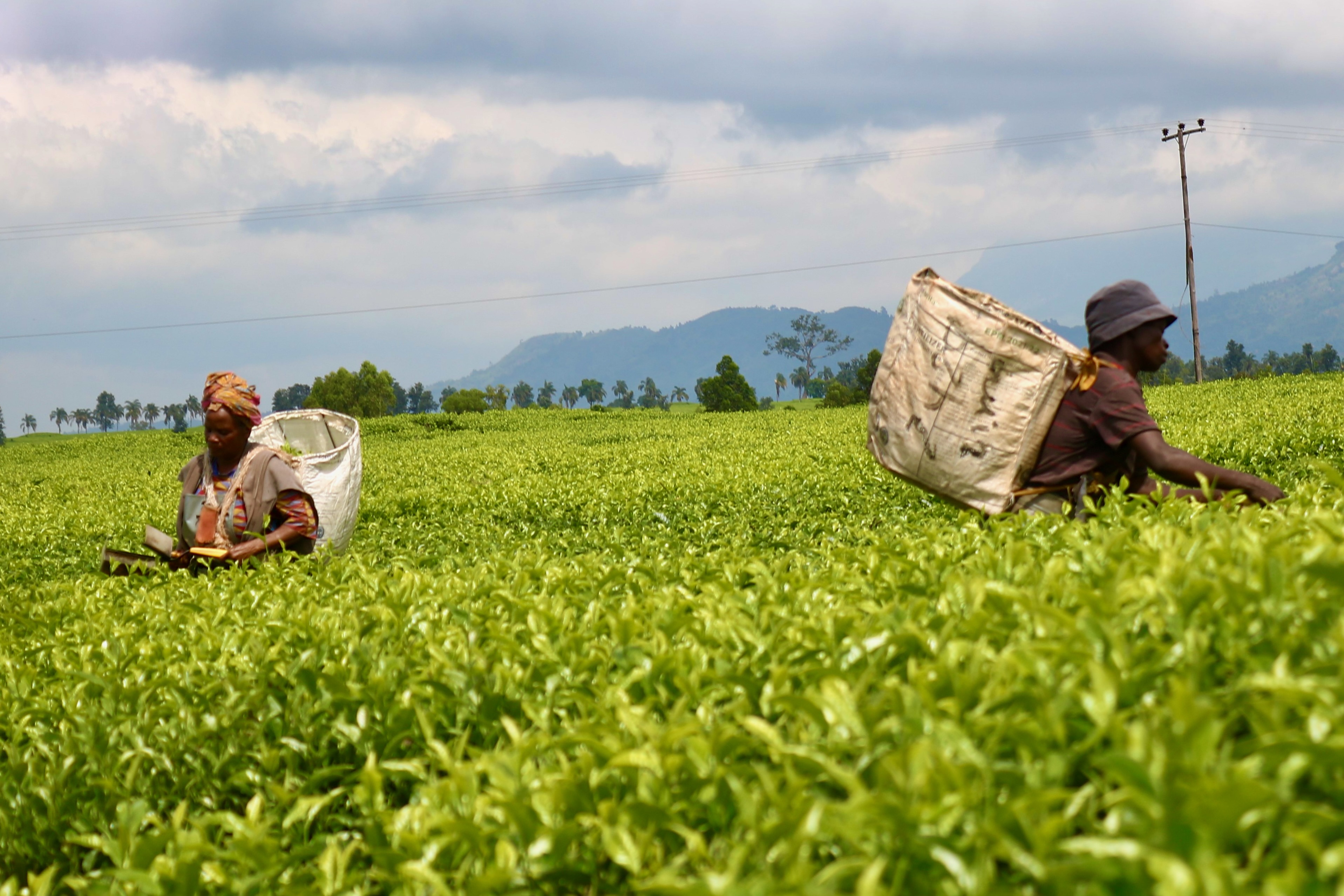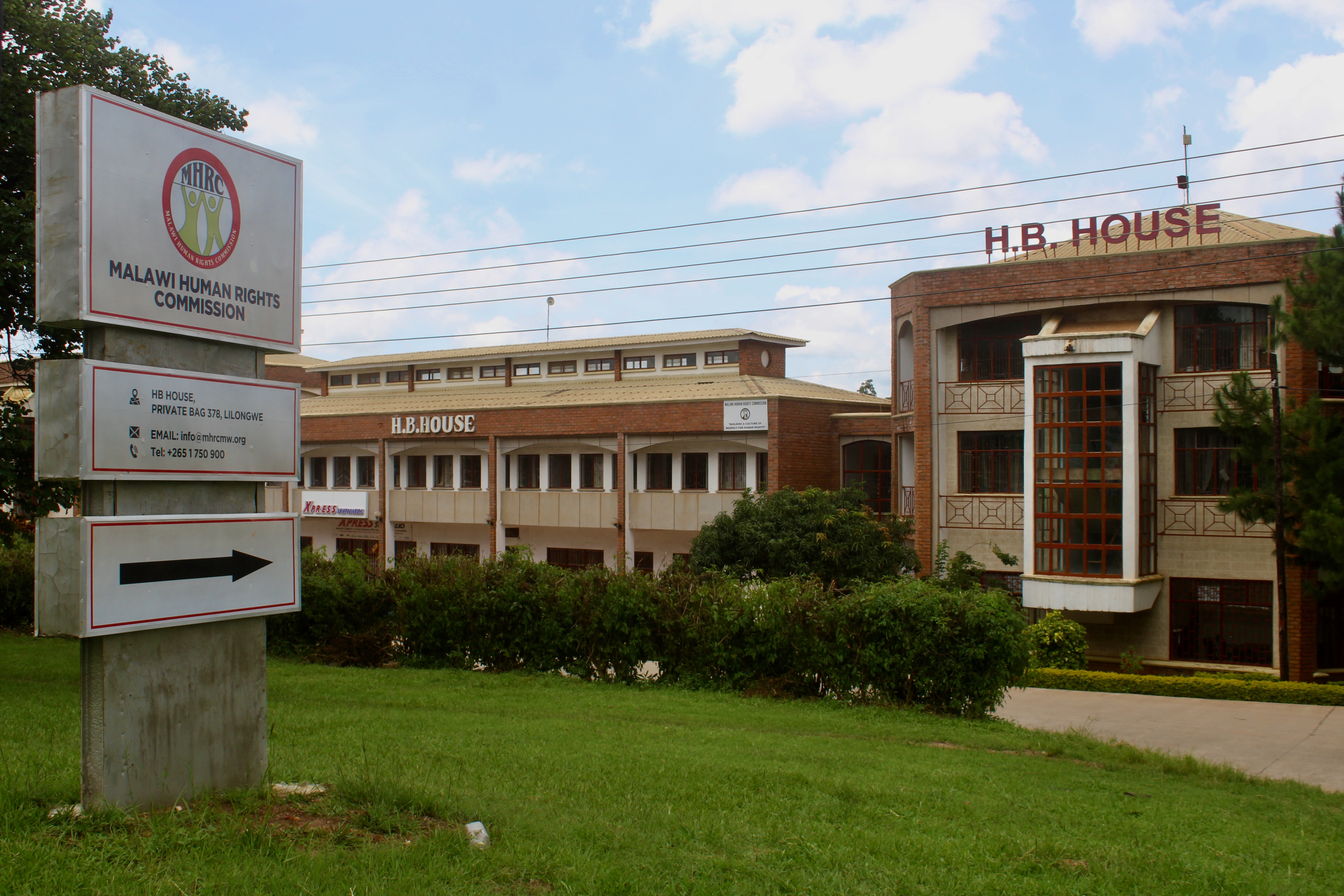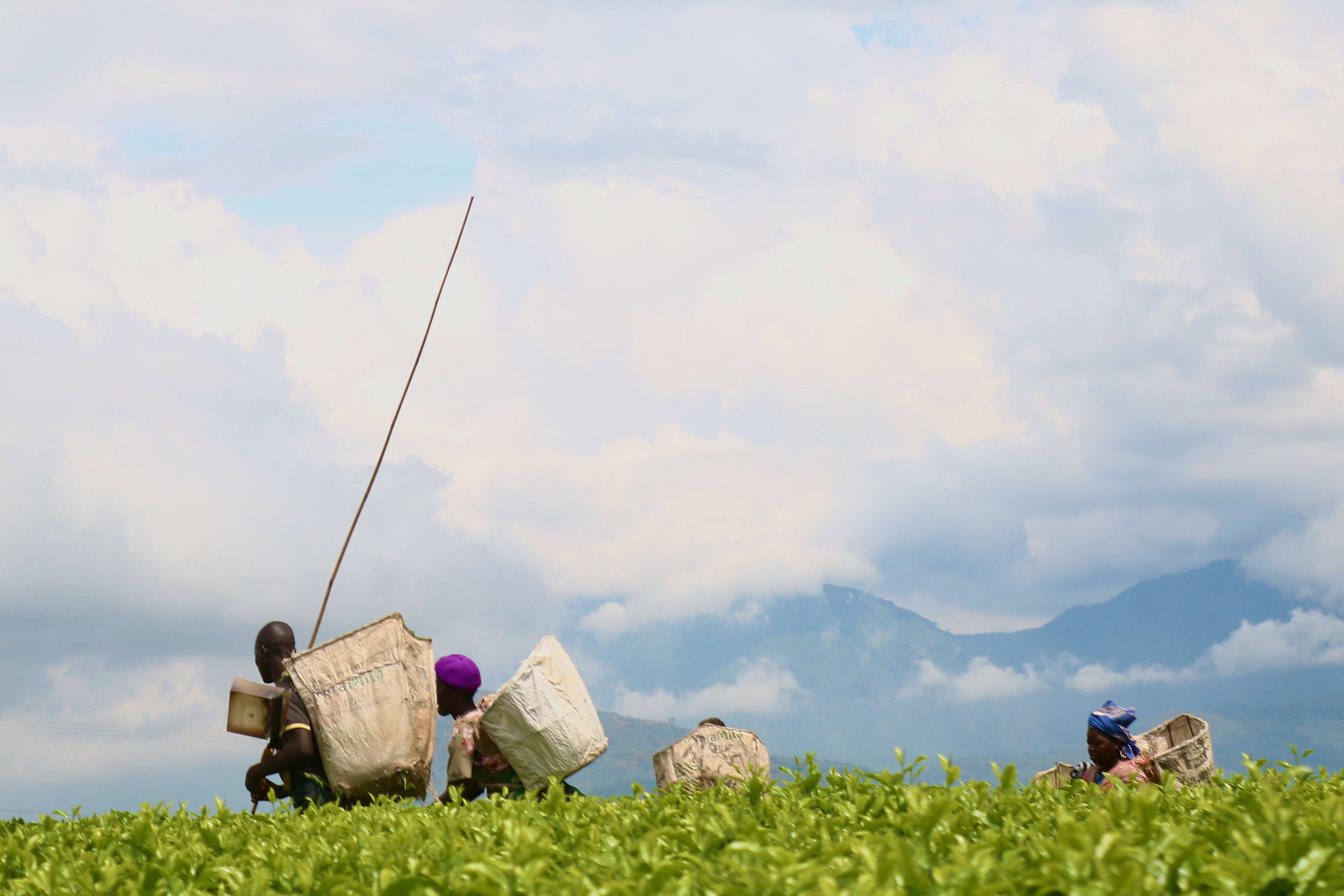Confidential damage payments mean new problems for abused farm workers.
Emily Gondwe was walking home from another day of picking tea on the plantation where she worked in Thyolo, Malawi when some friends approached her. There was a meeting, they told her, at the local Chief’s house, for women who had faced abuse on the tea estate.
Gondwe, like many in Malawi and indeed in East Africa, knew all about abuse on the tea estates. Besides the long working hours in the hot sun, little pay, and the common scourge of painful shoulders and backs, sexual harassment and rape were widespread. Gondwe herself had been forced to have sex with no less than three supervisors. She had never complained for fear of losing her job; US$40 per month wasn’t much, but it meant food.
In Malawi, the tea sector is the second largest employer, with over 60,000 workers at peak season, forty per cent of whom are women. Thyolo is one of the industry’s key centres: a landscape of deep green, criss-crossed by brown-red dirt roads, footpaths, hills and streams, with occasional splashes of purple from the seasonal jacaranda trees, and Mount Mulanje looming in the background. Bushy vegetation along the roadside often makes it hard to see the workers in the fields, but on the roads, the sight of pickers carrying baskets or large open bags on their backs is omnipresent, especially between November and May.
US$40 per month wasn’t much, but it meant food
All the women who worked here were familiar with the risk that a male supervisor or powerful colleague might ‘propose love’ to you. You didn’t have much choice when that happened. Refusing –or worse, complaining – might mean losing your job, so you often acquiesced, hoping faintly to perhaps even be rewarded with a promotion. But the risks were also terrifying: some women had become pregnant and had been fired for it. Some had been abandoned by both ‘lover’ and husband; some, like Emily Gondwe, had acquired HIV. Some had died.
But now there was exciting news to be discussed in the Chief’s house. A well-known human rights activist, Godfrey Mfiti, was there to tell the women about possible damage payments. “They advised those who had experienced abuse to register their names,” says Emily Gondwe. “They said they were to file a case against our employers.” It was early October 2019.
Specialists in personal injury
Eastern Produce Malawi Limited (EPM) is an indirect subsidiary of Camellia Plc, an international group employing approximately 78,500 people worldwide. The head office of the conglomerate is in London, in the United Kingdom. And it was in London that EPM was to be sued, by London-based lawyers Leigh Day, Specialising In Personal Injury, Employment & Human Rights, as it says on their homepage. Immediately after, the caption displays a phone number to call.
One of many international law firms that handle such cases, Leigh Day has represented victims in Mozambique, Kenya, Sierra Leone and other African countries in cases where abuse could be connected to multinational companies registered in the UK. Usually, large damage payments are awarded to the victims. Plus the fee for Leigh Day, of course.
Leigh Day has represented victims in several African countries
The claims of the women on the Malawi tea plantations, against EPM/Camellia and fellow tea companies Linton Park Plc and Robertson Bois Dickson Anderson Limited, were lodged in the High Court in London on 31 October 2019. In mid-2021, the court allocated the victims compensation ranging from US$5,000 to US$30,000 per person, to a total of US$2,7 million on all claims.
Vultures
It wasn’t long before the vultures came. Foremost among them, according to several of the women, was Blantyre-based NGO figure Godfrey Mfiti, the same Godfrey Mfiti who had set up the meeting through the local Chief in Thyolo and who had found women on the tea plantations in Mulanje to join in the lawsuit, too. “I thought Mr Godfrey Mfiti was a lawyer,” says Emily Gondwe.
Gondwe and five other Thyolo women also say that, after the award, Mfiti offered to help them to open bank accounts and invest their money in exchange for a cut. The amounts differ or are unclear, but in one case presently before the Malawi courts, Jaqueline Makiyi is suing Mfiti for taking practically her entire payment of US$15,000. According to the same court documents, Mfiti used a small part of the money to build a house for her but did a poor job; photographs show bricks missing from walls, window and door frames hanging, no floor, and the roof a mere plastic sheet. “I trusted Mfiti,” says Makiyi in her court submission. “I cannot read or write, I just used my thumb print whenever he told me to.”

Though Mfiti claims that he has worked for Leigh Day “for four years,” the law firm stated in a response to ZAM that “no one was subcontracted to help in ensuring the women received their compensation” and that it is “aware of allegations of money taken from our clients by individuals”. According to Jaqueline Makiyi, Leigh Day has helped her take Mfiti to court, hiring a local lawyer on her behalf.
Mfiti has pleaded not guilty to the charges. When ZAM reached out to him for comment, he said he could not speak out now since the court case is ongoing, but that “there will be news, also about Leigh Day, in six weeks.”
“They said we could not tell anyone what had happened”
Then thieves came in the night and robbed Emily Gondwe of her groceries, and plenty of relatives and people in the community also needed a share. But Gondwe and other compensated women say that the worst thing was the suspicion. The communities and families thought there was something fishy. Why was this neighbour suddenly so wealthy?
The women were forbidden from explaining. They had signed Non-Disclosure Agreements, by thumb print or just their name. They were mostly illiterate and, they say, still not quite sure what was actually placed before them. They only knew they could not tell anybody about what happened to them, who was to blame, how much they got. The result was that people thought that their mysterious sudden wealth could only be evil.
Satanic accusations
“I have been branded ‘satanic’,” says Emily Gondwe. “The money came at a time when my brother’s son became mentally ill. The family blamed that on my sudden riches.” Mphatso Chinyama wishes she “could explain (in her neighbourhood) what happened, but they told us not to discuss these issues with anyone. So I live with whatever blame they have on me.’” The story told in Fanizo Lungu’s community also involves ‘satanic’ and ‘blood money’ accusations, in her case so horrific that she has had to move away from her home village in Mulanje as well as from the tea plantation. “I, unfortunately, can’t go back there to seek employment after I reported them,” she says. Without a job, and with the US$15,000 damage payment long gone, she has had to start over.
"More harm than good"
Enforced non-disclosure agreements in sexual harassment cases are increasingly regarded as protecting perpetrators and potentially causing more harm than good. Australia’s Victoria region is working to eradicate the use of NDAs in such cases. Canada’s Prince Edward Island province allows for disclosure to family members for support and Ireland has legislation aiming to prevent employers from entering into NDAs, unless the employee themselves insists. When asked why the tea plantation complainants were obliged to sign NDAs, Leigh Day responded that the confidential settlement did “not prohibit our clients from reporting any intimidation or criminal behaviour to the police” and that “indeed we would encourage them to do so.”
Sudden wealth is well known to be ‘life-changing’. Most financial advisors are aware of the risks of stress and confusion, compounded by an avalanche of approaches – helpful or unhelpful – in such situations. Villagers who were forcibly removed from their homes to make space for a mining company in Mozambique, and who also received damage payments through Leigh Day, have told similar stories, only in this case – possibly since the recipients were men – often involving drink and vehicles. “Some bought motorcycles, others even minibuses, but they never made it. (…) They were partying, drunk,” one villager was reported saying in this story.
According to Netherlands-based lottery advisor Bea Post, every winner is ‘not … in the right state of mind’ for at least three months, which is why her company contracts counsellors like her to assist winners for periods up to a year.
The class suit women in Malawi say they received, courtesy of Leigh Day, financial management training of a week.
According to the law firm’s website, the settlement also included scholarships for ten women; a female leadership training programme; community programmes on Sexual Harassment and Gender Equality; a meeting hall; boreholes for water; and three new Victim Support Units for local police. But besides the police support units and some talks about the awareness programme, none of the interviewed women had observed these projects starting in the communities to date.
Emily Gondwe’s payment was spent on building a house, which she is now living in, and three uncompleted houses. She has no money left to finish them, or to maintain the structures that are there. She, too, has lost her job, and her traditionalist husband now feels free to cheat, she says, because didn’t she also ‘cheat’ with three other men?
The Labour Minister is angry
All of this gives rise to the question: why did sexual harassment on Malawi tea plantations, with both perpetrators and victims being Malawian, have to be addressed all the way from London, and in secrecy, bypassing the country’s women’s rights organisations? Should police and the justice system in Malawi itself not become serious about implementing the country’s Gender Equality law? Or the Labour Ministry about safety and good working conditions on the farms?
Minister Vera Kamtukule, who is now in charge of Tourism but was Minister of Labour at the time of the class action lawsuit, is mainly angry with me for having written about the tea plantations. “You betray Malawians,” she shouts when I phone her for comment. “This kind of news endangers our industry of 60,000 workers! We are now faced with the threats of sanctions on our tea from international labour organisations!” She blames me for having used the term ‘rampant’ rape. “Rampant means it happens all the time, which cannot be true. Is everybody being raped?” Later in the conversation, calmer, she directs her criticism to Leigh Day. “They come from London, and create this mess, but does anything change? Is anyone better off? Is the problem solved? You cannot solve this from the UK!”
When I ask who is to solve it, then, the Minister explains that the Department of Labour cannot ‘investigate everywhere’ because the labour inspectors ‘do not have enough vehicles’. “We should engage, you and me, as Malawians, you as journalists should help inform us.” Has she forgotten that when I informed her previously, last year when she still was Minister of Labour, she responded that she had ‘recently’ been in the area and did not notice any problem?

An array of local non-governmental organisations, including the Women’s Lawyers Association and the NGO gender coordination network, agree that much still needs to be done to advance women’s rights in Malawi, and that they can understand victims seeking redress elsewhere. However, the Malawi Human Rights Commission makes the point that the London route and the secrecy get in the way. Gender Officer Grace Mtawali “has been trying to engage” with Leigh Day on what she terms a “live investigation” into the tea plantations, she says, but all efforts have proved “futile.”
The abuse continues
Meanwhile, the situation on the tea plantations remains unchanged. As far as I could assess, no man accused of harassment has lost his job, while the complainants have all left because, in the words of Emily Gondwe, “we reported.” Some women who were part of the lawsuit in the beginning but dropped out along the way have remained on the plantation, says former class suit participant Mwaiwao Phiri, who received US$5,000 and now rents out five small houses she built for the equivalent of US$6 per month each (which gives her roughly the same income as she once had picking tea.) “They withdrew their statements after supervisors threatened them that they would never get employment again and they would never win. Others were afraid that they might lose their marriages once their husbands heard about this. They continue to work, silently facing the abuse.”
Asked if, knowing what she knows now, she would do the same thing again, Emily Gondwe says no.
Leigh Day comments
Leigh Day has stated that no money for itself was “deducted from the compensation pay outs” but that “a separate contribution towards our clients’ legal fees was made by Camellia plc.” Asked whether it has assessed how the lives of the claimants have or have not changed after the compensations, Leigh Day said that it has “followed up with our clients following their receipt of compensation” but that it “cannot provide details of our communications” since these are “confidential and legally privileged.” Asked about the impact to date of the community benefits provided in the settlement, Leigh Day says it has instructed “independent experts Triple R Alliance” – an agency, according to its website, that ‘supports companies in their efforts to reduce human rights risk’ – to “monitor, guide and oversee Camellia’s commitments.”
Note: All complainants’ names have been changed.

Josephine Chinele is a multi-award-winning investigative journalist who has worked for newspapers, radio and television platforms in Malawi, Tanzania and South Africa and as a fellow for the Los Angeles Times in the USA amid other international journalism fellowships.


